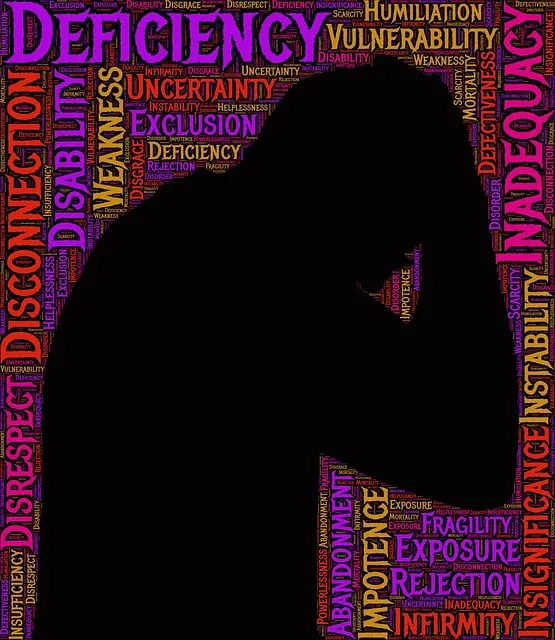Kaiser Permanente's Crisis Intervention Teams (CITs) in Castle Rock offer vital mental healthcare, focusing on de-escalation and personalized support for severe emotional crises. Through cultural sensitivity training, workshops, and stress management techniques, CITs enhance self-esteem and inner strength development while mitigating burnout risks. This innovative program combines evidence-based practices, mindfulness meditation, and effective communication strategies to provide compassionate care, improving community well-being in Castle Rock and beyond.
In today’s complex landscape, effective crisis intervention teams (CITs) are a vital resource in mental health care. With an increasing focus on community support and wellbeing, organizations like Kaiser Permanente and Castle Rock are leading the way with innovative training programs. This article explores the necessity of CITs, delves into Kaiser Permanente’s comprehensive training model, highlights Castle Rock’s role in enhancing community support, and examines key components for effective crisis intervention team training. Real-world success stories round out this comprehensive guide, offering insights into future directions for continuous improvement.
- Understanding Crisis Intervention Teams: A Necessary Resource in Mental Health Care
- Kaiser Permanente's Approach to Training: A Comprehensive Model
- The Role of Castle Rock in Enhancing Community Support for Mental Wellbeing
- Key Components of Effective Crisis Intervention Team Training Programs
- Real-World Impact: Success Stories and Future Directions for Continuous Improvement
Understanding Crisis Intervention Teams: A Necessary Resource in Mental Health Care

Crisis Intervention Teams (CITs) are a vital resource in mental health care, particularly within organizations like Kaiser Permanente mental health facilities in areas such as Castle Rock. These specialized teams consist of trained professionals who respond to individuals experiencing severe emotional or psychological crises. The primary goal is to provide immediate support, de-escalate the situation, and connect the individual with appropriate long-term care options.
By integrating Cultural Sensitivity in Mental Healthcare Practice, CITs ensure that every individual receives care tailored to their unique needs and background. This approach promotes Inner Strength Development and Self-Esteem Improvement, empowering individuals to cope with challenges and navigate their mental health journeys more effectively.
Kaiser Permanente's Approach to Training: A Comprehensive Model

Kaiser Permanente, a leading healthcare provider, has established itself as a pioneer in crisis intervention team (CIT) training with its comprehensive model centered around mental health support. The program, based in Castle Rock, is meticulously designed to equip both healthcare providers and community members with the necessary skills to handle critical situations effectively. Through interactive workshops and real-life scenarios, participants gain proficiency in identifying and managing mental health crises, fostering a culture of resilience within their communities.
The training goes beyond traditional CIT programs by emphasizing cultural competency development for healthcare providers. It encourages self-care routine establishment as a proactive measure for better mental health among practitioners, ensuring they can offer optimal care while mitigating burnout risks. This holistic approach aligns with Kaiser Permanente’s commitment to not only enhancing crisis response but also promoting the overall well-being of those involved in delivering essential mental health services.
The Role of Castle Rock in Enhancing Community Support for Mental Wellbeing

Castle Rock, a pioneering initiative by Kaiser Permanente, plays a pivotal role in bolstering community support for mental wellbeing. This program focuses on empowering individuals with Emotional Well-being Promotion Techniques and Stress Management strategies, thereby fostering a resilient and supportive environment. Through interactive workshops and Crisis Intervention Guidance, Castle Rock equips participants with the skills needed to recognize and address mental health challenges effectively. By integrating these techniques into daily life, communities can create a network of support that prevents crises and promotes overall well-being, reflecting Kaiser Permanente’s commitment to holistic healthcare solutions.
Key Components of Effective Crisis Intervention Team Training Programs

Effective crisis intervention team training programs are multifaceted and designed to equip participants with a comprehensive set of skills. Key components include evidence-based practices such as mindfulness meditation, which fosters calmness and emotional regulation in high-stress situations. By integrating mindfulness into their repertoire, team members can enhance their ability to provide compassionate and effective support.
Additionally, these programs emphasize the importance of self-care routine development for better mental health. Training should teach strategies for managing personal stress and burnout, ensuring that crisis intervention teams maintain resilience over time. Communication strategies are another cornerstone, focusing on active listening, empathy, and de-escalation techniques to facilitate open dialogue and build trust with individuals in crisis. Programs like those offered by Kaiser Permanente’s mental health services in Castle Rock prioritize these elements to prepare teams for the unique challenges they may encounter in their roles.
Real-World Impact: Success Stories and Future Directions for Continuous Improvement

The real-world impact of crisis intervention team (CIT) training programs is a testament to their effectiveness in enhancing community well-being. Organizations like Kaiser Permanente have recognized the importance of mental health support, leading to initiatives that prioritize emotional regulation and self-care routine development for better mental health. The CIT approach has proven successful in various settings, including Castle Rock communities, where these teams have been instrumental in de-escalating potentially harmful situations.
Looking ahead, continuous improvement remains a key focus. By integrating the latest research in mental health awareness and adaptive strategies, these training programs can further refine their methods to better serve diverse populations. The future of CIT lies in its adaptability, ensuring that communities receive tailored support that addresses unique challenges while fostering resilience and promoting overall well-being.
Crisis intervention team (CIT) training programs play a pivotal role in enhancing mental healthcare by fostering community support. As demonstrated by Kaiser Permanente’s comprehensive model and Castle Rock’s innovative approach, these programs equip professionals with the skills to effectively navigate and de-escalate crises. By focusing on key components such as evidence-based practices, cultural competency, and continuous improvement, CIT training ensures a holistic and impactful response. Moving forward, leveraging real-world success stories will drive further development, ultimately strengthening the mental health support system for all communities, including those served by organizations like Kaiser Permanente and Castle Rock.






